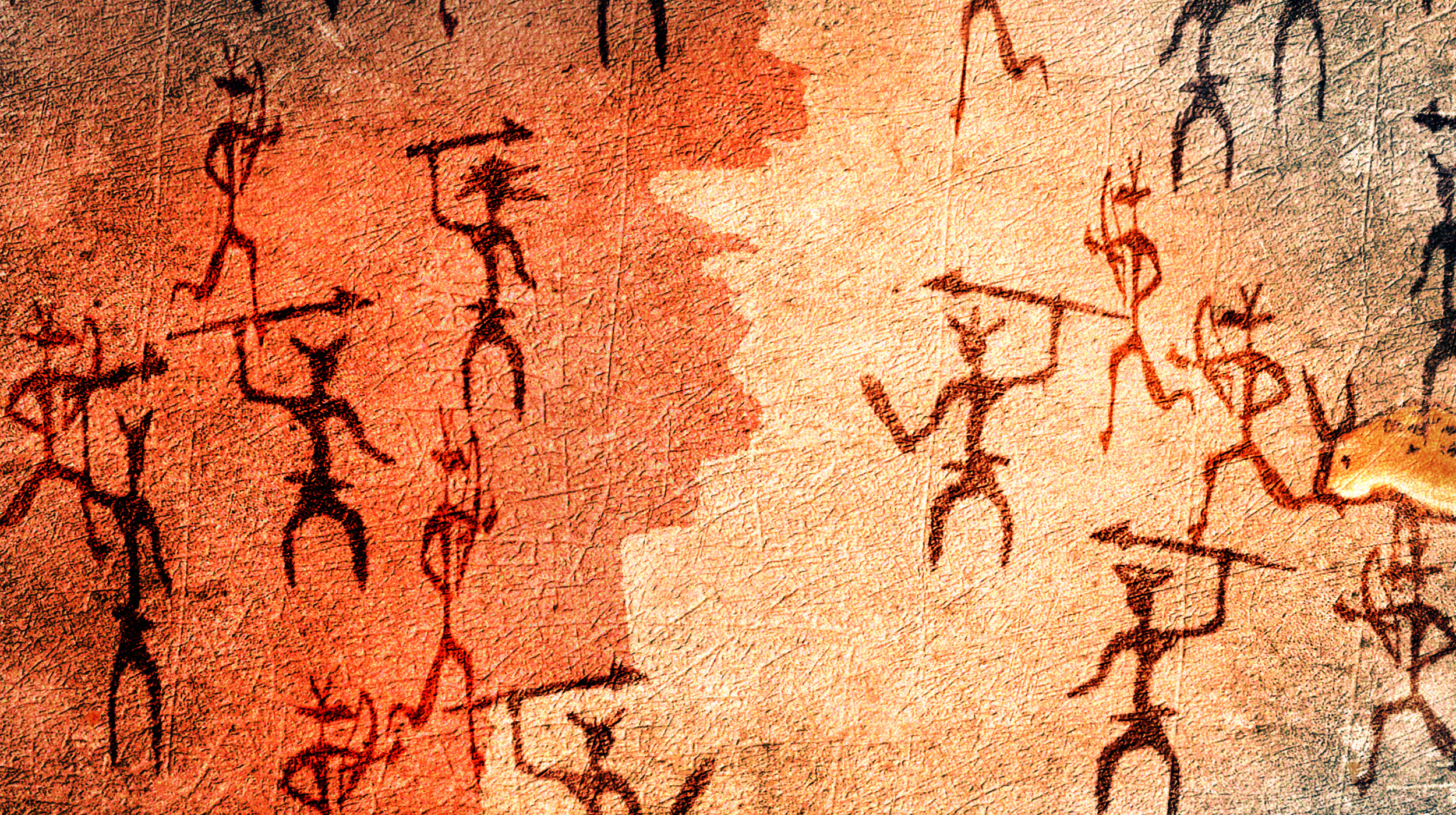RUTGER BREGMAN: There's a really old theory in Western culture that scientists call veneer theory. The idea here is that our civilization is only a thin veneer, only a thin layer, and that below that veneer, sort of real raw human nature resides. And that when something small happens—or big, you know we're in a crisis or in a pandemic right now—that humans reveal who they really are, that deep down we're just selfish. We are beasts. We may even be monsters. But luckily, we have this civilization that is basically protecting us from what we really are. Now, this idea, this theory, veneer theory, is very old and very dominant in Western culture. It goes all the way back to the ancient Greeks. You also find it within Christianity, Orthodox Christianity. Think about St. Augustine talking about the notion of original sin, that we're all born as sinners. And you also look at modern capitalism. And again, I think the central dogma of our current capitalist system is that people are selfish. So this veneer theory, it comes back again and again and again in our history. And I think the only problem with it is that it's simply wrong. So in the last 20-25 years, we've seen so much evidence accumulating from anthropology and from archaeology and from biology and from psychology and sociology with one main message which is that basically, deep down, most people are pretty decent and that this capacity for cooperation is actually our true superpower.
Human beings have evolved to cooperate. If you ask the question, what makes us so special? Are we selfish? Are we very smart? Are we very violent or strong or powerful or whatever? What is the reason that we conquered the globe? Why not the bonobos or the chimpanzees? And I think the answer is that we have evolved to work together and to cooperate on a scale that no other species in the whole animal kingdom has been able to do. So, on the one hand, we're the friendliest species in the animal kingdom, but on the other hand, we're also the cruelest species, right? I've never heard of a penguin that says, "Let's exterminate another group of penguins. Let's lock them up in prisons. Let's kill them all." These are singularly human crimes. One of the disturbing things actually if you study the history of warfare and of genocides is that these things are often highly moral phenomena. It's not as if there are a lot of sadists thinking, "Oh, we just enjoy killing other people." You know, those people do exist, but they're very, very rare. Actually most atrocities are committed in the name of loyalty, and in the name of friendship, and in the name of helping your people. That is what's so disturbing. It's really the dark side of friendliness. If you study soldiers, German soldiers in the second world war, and you ask the question, why did they keep on fighting in 1944, in 1945, even though it was clear they were going to lose the war? Well, psychologists back then thought they were all brainwashed. You know, that was their hypothesis. Then they started interviewing prisoners of war and discovered that actually most of the soldiers were fighting because of their friends and they didn't want to let their comrades down. So kameradschaft, comradeship, was the most important thing.
It's very rare that people are being violent or nasty to each other and that their justification is, "You know what? I just enjoy that." So the Joker doesn't really exist in real history. Most, sort of what we call evil people, think they're actually on the right side of history. And that is exactly what is so disturbing. This is actually the very paradoxical finding of scientists over the last 20 years, is that empathy and xenophobia are intimately connected. So, we often feel empathy for those who are like us, you know, our friends, our family members, our colleagues, people who are from the same town or city or nation, but then often parallel to that, we feel more xenophobia for those who are not like us, right? You get this in-group, out-group dynamic. And that is something that is in each and every one of us, right? You can already find it with babies as young as nine months old. They've done these studies where they already see these xenophobia tendencies with people. So that's not all nurture. That is really something that is within our brains. It's sort of a button that can be pushed. I think it's important to be realistic about this and to understand that. That doesn't mean we have to go all the way of arguing and saying that people are naturally evil or anything like that. I think that's clearly not the case. I think that's very important to understand, because it has revolutionary implications for how we organize a society. Once you assume that people are fundamentally selfish, then you are going to design your society around it. Your democracy, your schools, your workplaces, your prisons, and it can become a self-fulfilling prophecy. If we turn it around and if we actually assume that most people are pretty decent, then I think we can create very different kinds of schools and very different kinds of workplaces that will enable us to trust each other more. And yeah, it could help us move to a much more egalitarian and democratic society.





